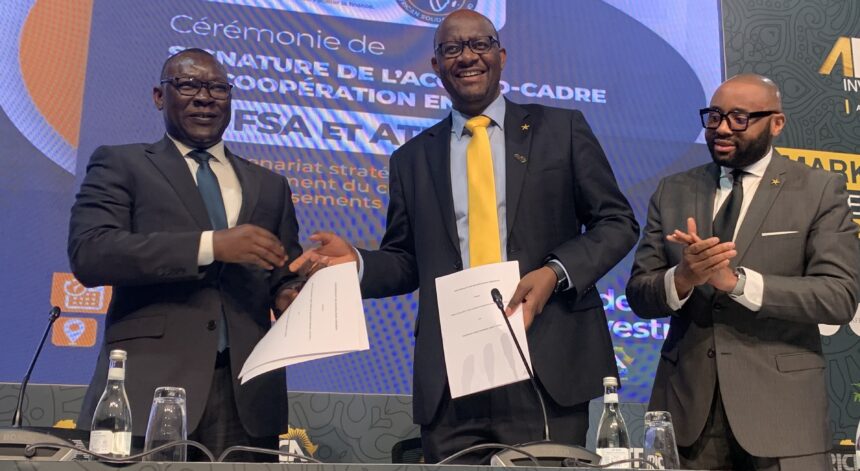African Trade and Investment Development Insurance (ATIDI), a leading risk underwriting firm established by African states to provide insurance cover trade and investment risks of companies doing business in Africa, and African Solidarity Fund (ASF), a pan-African financial institution, have signed a framework cooperation agreement, paving the way for further strategic collaboration to promote economic development and mitigate the risks associated with investment and trade in Africa.
The agreement, which was signed last week on the sidelines of the Africa Investment Forum 2024 (AIF 2024) held in Rabat –Morocco, provides a framework for cooperation in support of infrastructure and economic development projects in member states belonging to both institutions (Benin, Burkina Faso, Burundi, Chad, Côte d’Ivoire, Mali, Niger, Rwanda, Senegal and Togo), and also helps mitigate risk for investors, corporates and lenders looking to invest in Africa.
Commenting on the deal, ASF Managing Director, Mr. Abdourahmane Diallo, said the pact marked an important milestone in promoting sustainable development in Africa.
He said: “We are joining forces to drive investment and encourage economic growth across the continent, while ensuring a secure environment for investors.”
In his remarks, ATIDI’s CEO, Manuel Moses, explained that the partnership presented the company with an opportunity to strengthen its range of practical financial solutions designed to meet Africa’s economic challenges, including by mitigating the risks that often hinder trade and investment.
He further clarified: “It also reflects the need for multilateral institutions to work together to facilitate access to development financing for our continent. Together, we will help create a prosperous future for member states and African businesses.”
According to the partners, the main objectives of this partnership include marketing of both organizations’ risk mitigation solutions for commercial and investment transactions; supporting the development of renewable energy sources and infrastructure within the framework of the African Continental Free Trade Area (ACFTA); and developing professional skills and improving the business environment in Africa.
Analysts believe that the agreement represents a turning point for both institutions, which are committed to coordinating their efforts to boost intra-African trade, encourage investment in projects with strategic impact, and promote economic development across the continent.






